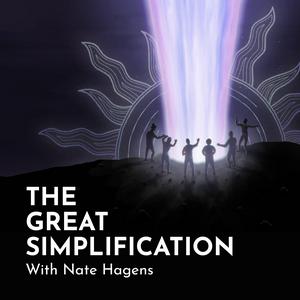Where Will Humanity Move When the World Gets Too Hot? Mass Climate Migration & The Rise of Uninhabitable Regions with Sunil Amrith
In the next 25 years, the International Organization for Migration estimates that one billion people will be displaced from their homes due to climate-related events. From island nations underwater to inland areas too hot and extreme to sustain life, the individuals and communities in these areas will need somewhere new to live. Where will these people go, and how will this mass migration add further pressure to the stability of nations and the world? In this episode, Nate is joined by environmental and migration historian, Sunil Amrith, to explore the complex history of human movement – and what it reveals about the looming wave of climate-driven migration. Sunil explains how the historical record shows migration has always been a defining feature of human life, not an exception. Together, they examine projections for future migration trends and the urgent need for acceptance, planning, and infrastructure to support the integration of new communities. What lessons can we draw from past environmental crises that forced people to move, and how do today’s challenges overlap or differ? How have countries historically responded to large-scale migration, and what long-term impacts did those choices have on their stability and prosperity? Ultimately, how might a more open and welcoming mindset help us face the unprecedented migrations ahead, as well as transform them into opportunities for survival, resilience, and shared thriving? (Conversation recorded on August 14th, 2025) About Sunil Amrith: Sunil Amrith is the Renu and Anand Dhawan Professor of History at Yale University, with a secondary appointment as Professor at the Yale School of the Environment. He is the current Henry R. Luce Director of the Whitney and Betty MacMillan Center for International and Area Studies at Yale. Sunil’s research focuses on the movements of people and the ecological processes that have connected South and Southeast Asia, and has expanded to encompass global environmental history. He has published in the fields of environmental history, the history of migration, and the history of public health. Sunil’s most recent book The Burning Earth, an environmental history of the modern world that foregrounds the experiences of the Global South, was named a 2024 “essential read” by The New Yorker, and a “book we love” 2024 by NPR. Additionally, Sunil’s four previous books include Unruly Waters and Crossing the Bay of Bengal: The Furies of Nature and the Fortunes of Migrants. Show Notes and More Watch this video episode on YouTube Want to learn the broad overview of The Great Simplification in 30 minutes? Watch our Animated Movie. --- Support The Institute for the Study of Energy and Our Future Join our Substack newsletter Join our Hylo channel and connect with other listeners


